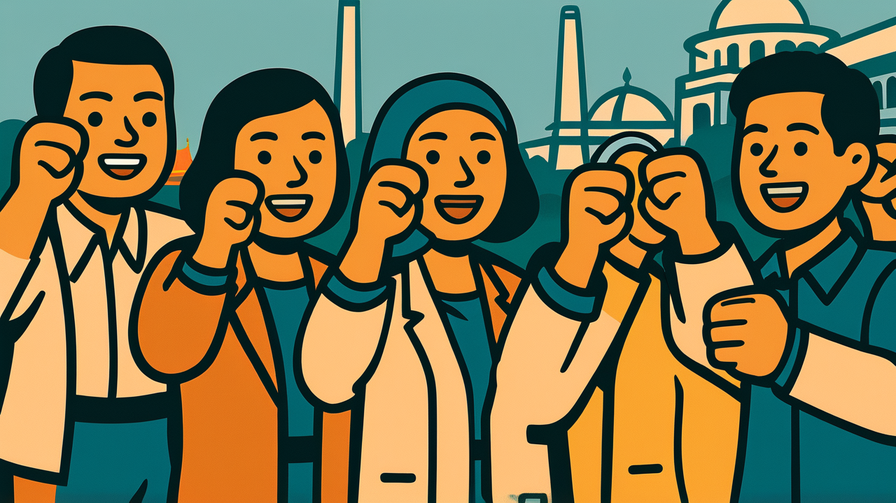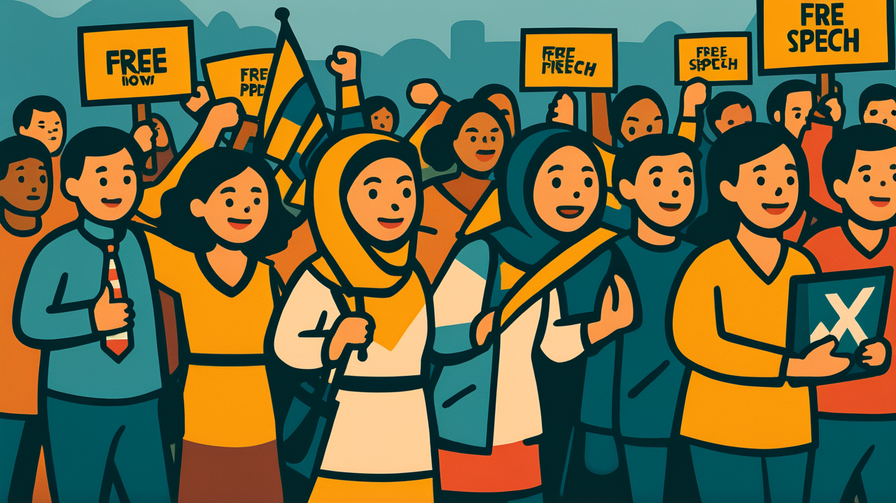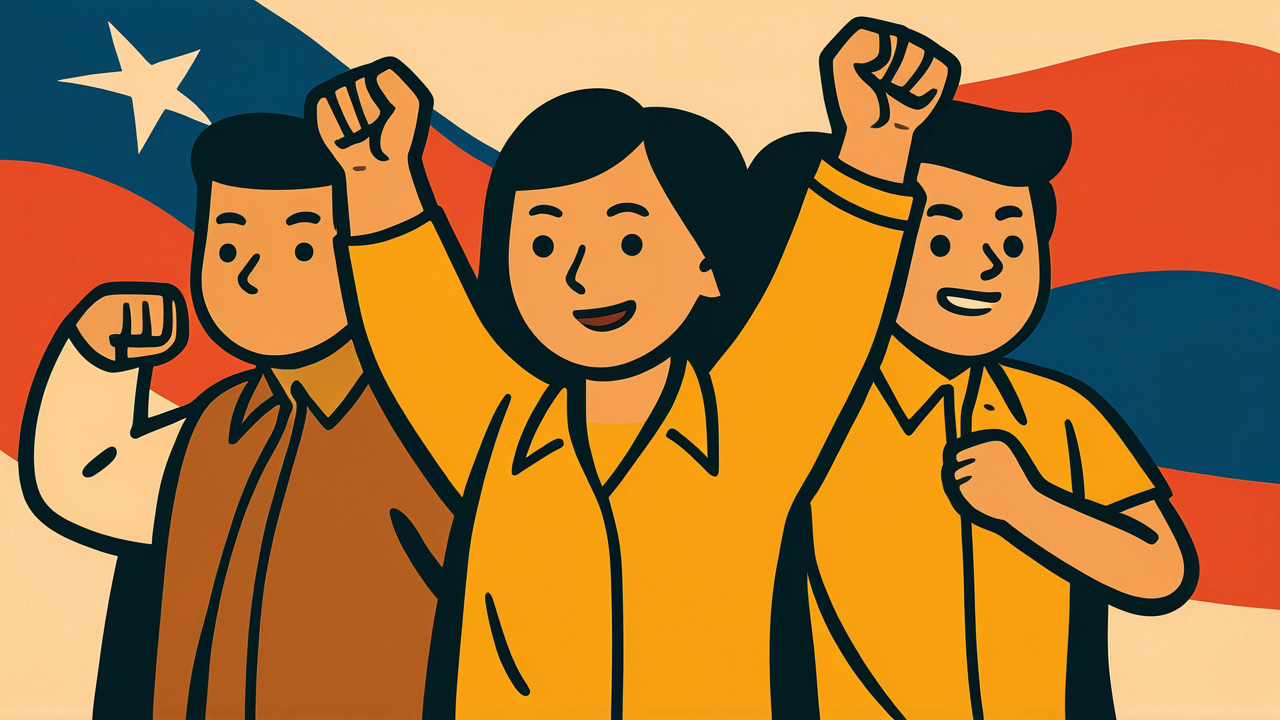[Disclaimer] This article is reconstructed based on information from external sources. Please verify the original source before referring to this content.
News Summary
The following content was published online. A translated summary is presented below. See the source for details.
Human rights activists in Malaysia are experiencing mixed emotions as they celebrate several important victories while acknowledging that significant challenges remain in protecting free speech and civil liberties. Recent wins include successful legal challenges against restrictive laws, the release of some political prisoners, and greater public awareness about human rights issues. Courts have ruled in favor of activists in several high-profile cases, setting important precedents for freedom of expression. However, activists note that problematic laws like the Sedition Act and Communications and Multimedia Act continue to be used to silence critics and limit free speech. The government has made some reforms, but activists argue these changes don’t go far enough. Online censorship remains a concern, with social media posts and news websites facing increased scrutiny. Despite the challenges, the human rights community remains hopeful, pointing to growing youth engagement and international support for their cause. They emphasize that while celebrating victories is important, the work to ensure full freedom of expression and human rights protection in Malaysia must continue.
Source: globalvoices
Our Commentary
Background and Context

Malaysia’s journey toward greater freedom of expression has been long and complex. The country gained independence from British rule in 1957 but inherited and maintained many colonial-era laws that restrict free speech. For decades, laws like the Sedition Act (dating from 1948) and the Official Secrets Act have been used to limit criticism of the government and control public discourse. The situation became particularly tense during the 1980s and 1990s when many activists, journalists, and opposition politicians were detained without trial. While Malaysia has made economic progress and is considered a middle-income country, its human rights record has often lagged behind its economic development.
Expert Analysis
Human rights experts view Malaysia as a test case for democracy in Southeast Asia. The country’s dual legal system (combining civil law and Islamic law) creates unique challenges for protecting civil liberties. Recent court victories suggest that Malaysia’s judiciary is becoming more independent, which is crucial for protecting human rights. However, experts warn that legal victories alone aren’t enough – they need to be backed by political will and cultural change. The rise of social media has created new battlegrounds for free speech, with the government struggling to balance security concerns with citizens’ rights to express themselves online.
Additional Data and Fact Reinforcement
Recent statistics paint a complex picture of Malaysia’s human rights situation. In 2024, there were 47 cases of individuals charged under the Sedition Act, down from 89 cases in 2020, showing some improvement. Press freedom rankings place Malaysia at 73rd out of 180 countries, better than some neighbors but still indicating significant restrictions. Youth engagement has increased dramatically, with human rights organizations reporting a 60% increase in volunteers under age 25 in the past three years. International pressure has also intensified, with the United Nations Human Rights Council reviewing Malaysia’s record and making 268 recommendations for improvement.
Related News
Malaysia’s human rights developments occur against a backdrop of regional changes. Neighboring Thailand has seen massive youth-led protests demanding democratic reforms, while Singapore maintains strict controls on speech despite its economic success. Indonesia, the region’s largest democracy, provides both inspiration and cautionary tales for Malaysian activists. The recent ASEAN summit included discussions on human rights, though member states remain divided on how actively to promote civil liberties. Malaysia’s application to join the BRICS economic group has also raised questions about how its human rights record might affect international partnerships.
Summary

Malaysian human rights activists find themselves at a crucial moment, celebrating hard-won victories while recognizing the long road ahead. The combination of legal wins, youth engagement, and international attention provides hope, but restrictive laws and online censorship remain serious obstacles to full freedom of expression. The struggle for human rights in Malaysia continues to evolve, shaped by both local determination and global influences.
Public Reaction
Malaysian social media has been buzzing with discussions about these human rights developments. Young Malaysians have been particularly vocal, using hashtags and online campaigns to support activists and spread awareness. Many express frustration with the slow pace of change while acknowledging progress. Business leaders have begun speaking out, noting that greater freedom of expression could boost innovation and attract international investment. Religious groups remain divided, with some supporting greater freedoms while others worry about maintaining traditional values. The Malaysian diaspora has been actively supporting the movement from abroad, organizing rallies and fundraising for legal defense funds.
Frequently Asked Questions
Q: What is the Sedition Act and why is it controversial?
A: The Sedition Act is a law from 1948 that makes it illegal to say or write things that might cause people to hate or disrespect the government. It’s controversial because it’s often used to silence critics and limit free speech, even for peaceful criticism.
Q: How do human rights in Malaysia compare to other countries in the region?
A: Malaysia falls somewhere in the middle among Southeast Asian countries. It has more freedoms than countries like Vietnam or Laos, but less than Philippines or Indonesia. Each country has its own unique challenges and strengths.
Q: Can young people really make a difference in human rights?
A: Absolutely! Throughout history, young people have been at the forefront of human rights movements. In Malaysia, youth activism through social media, peaceful protests, and volunteer work is creating real change and putting pressure on leaders to reform outdated laws.


